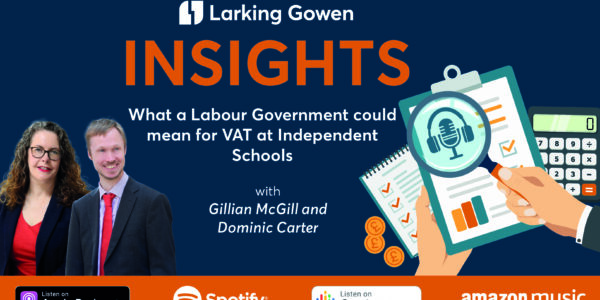National tutoring programme launches in schools
3/11/2020 - National Tutoring Programme

32 organisations selected by the Education Endowment Foundation including charities, a school partnership and for-profits will deliver high-quality tutoring to disadvantaged pupils as approved Tuition Partners.
The first 188 Academic Mentors, recruited and trained by education charity Teach First, will also be starting in schools as part of their mission to build a fair education for all. Mentors will support teachers by providing intensive academic support to the pupils most in need.
The National Tutoring Programme (NTP), designed by a group of five independent charities, is today launching in schools. The NTP was established in response to clear evidence that Covid-19 is likely to widen the attainment gap between poorer pupils and their peers in English schools. It is funded as part of the Government’s £350m allocation to tutoring, through the £1bn coronavirus catch up package.
The two pillars of the programme, NTP Tuition Partners and NTP Academic Mentors, will widen access to high-quality tutoring and academic mentoring for disadvantaged pupils who have disproportionately been affected by the pandemic.
Extensive evidence shows that children can make significant progress with high-quality tutoring. New analysis of polling by the Sutton Trust for the NTP has highlighted the “tutoring gaps”, which the NTP aims to address:
- The Disadvantage Gap: Pupils from the least affluent families are significantly less likely to have been tutored compared to those from the most affluent (18% vs. 43%), a gap that likely widened during lockdown.
- The Regional Gap: The availability of high-quality tutoring varies widely across England, with many coldspots where tutoring is unavailable. Pupils in London are significantly more likely to have accessed tutoring (50%) than their peers outside the capital (29%).
Tuition Partners
Through the Tuition Partners pillar, schools will be able to access subsidised high-quality tutoring. Tutoring could cost as little as £50 per pupil for a block of 15 sessions delivered in small groups of three pupils. Schools will be able to book tutoring with Tuition Partners from 10am today (02/11/2020).
Approved providers have been selected based on a rigorous assessment process conducted by the Education Endowment Foundation (EEF), an independent charity. In total, it is estimated that approximately 15,000 tutors will support the scheme.
Schools will be able to choose between different providers and a variety of models, including face-to-face and online tutoring, with NTP funding mobilising a whole range of tutors, including supply teachers, university students and trained volunteers.
Approved Tuition Partners include:
- The Brilliant Club, an award-winning national education charity focused on mobilising the PhD community to work with state schools, who will be using PhD tutors to deliver curriculum-focused tutoring as part of NTP through their new Brilliant Tutoring Programme.
- Schools Partnership Tutors, a group of schools from Suffolk, Essex, Cambridgeshire and East London offering face-to-face and online tutoring to schools across the country.
- Targeted Provision, an organisation providing tuition exclusively to pupils with Special Educational Needs and Disabilities (SEND) and social, emotional and mental health (SEMH) needs. All of their tutors are qualified teachers with a minimum 3 years’ experience supporting pupils with additional educational needs.
- The Tutor Trust, a Manchester-based charity that trains university undergraduates to provide tutoring in local schools, with proven impact on pupil outcomes.
- White Rose Maths, a Yorkshire-based company with a strong reputation for providing support, training and resources about teaching mathematics in primary and secondary schools.
Tens of thousands of pupils are likely to be enrolled in the first six weeks, with provision increasing further after Christmas. As tutoring capacity across the country grows, schools serving the most disadvantaged communities will be prioritised.
Academic Mentors
The second pillar of the NTP, The Academic Mentor Programme, also launches today, with the first wave of 188 Academic Mentors starting in schools serving disadvantaged communities, against a target of 150.
These mentors will be deployed directly by teachers and school leaders to provide additional intensive academic support to the pupils most in need, to help them make faster progress, particularly important after so many have missed half a year in school.
Academic Mentors have been recruited, trained, placed and supported by the education charity Teach First. They will be employed directly by the school as full-time members of staff, with their salaries paid by the Department of Education.
In total, Teach First will recruit and train 1,000 Academic Mentors, with the further cohorts starting in schools in January and February.
Sir Peter Lampl, founder and chairman of the Sutton Trust and chairman of the Education Endowment Foundation, said:
“Today marks an important day for the National Tutoring Programme. I am delighted that schools will have access to tutoring from so many high-quality organisations.
“For too long, low income pupils have not been able to afford tutoring. This is an important step in enabling them to access it.”
Russell Hobby, Chief Executive of Teach First said:
“We’re thrilled to see the first wave of Academic Mentors start in their schools today. Teachers are already working incredibly hard to restore pupil learning after such a challenging period outside the classroom. Trained mentors will provide much needed back up.
“We look forward to working closely with schools serving disadvantaged communities across the country to ensure that young peoples’ futures are not further blighted by this pandemic.”
Professor Becky Francis, Chief Executive of the Education Endowment Foundation (EEF) said:
“We’re delighted to be able to fund this diverse range of NTP Tuition Partners. Providers have been awarded funding based on the quality of their tutoring model, their evidence-based approach and their ability to support a large number of schools.
“By harnessing tutoring capacity within the education sector – from undergraduates and trained volunteers to qualified specialist educators – we’ll be able to build supply across the country to support tens of thousands of disadvantaged pupils.
“Tutoring can only be one part of the response to the severe impact of the pandemic on learning. But it’s an approach supported by an extensive evidence base, which can provide an important boost during a difficult year.”
For more information, please visit the National Tutoring Programme’s website.
All articles on this news site are submitted by registered contributors of SuffolkWire. Find out how to subscribe and submit your stories here »

